Help! My Dog Is 6 Months Old and NOT Potty Trained (Fixes)
You might think that having a puppy is a life filled with cuddles and kisses. But when it comes to house training your pup, it’s a whole other story you may not have expected. House training a puppy requires consistency, accidents, and lots of TLC and positive reinforcement.
Most breeds of dogs typically learn the basics of potty training within the first four to six months. But, not to worry if yours isn’t potty trained at six months old because some breeds, especially smaller dogs, can sometimes take longer.
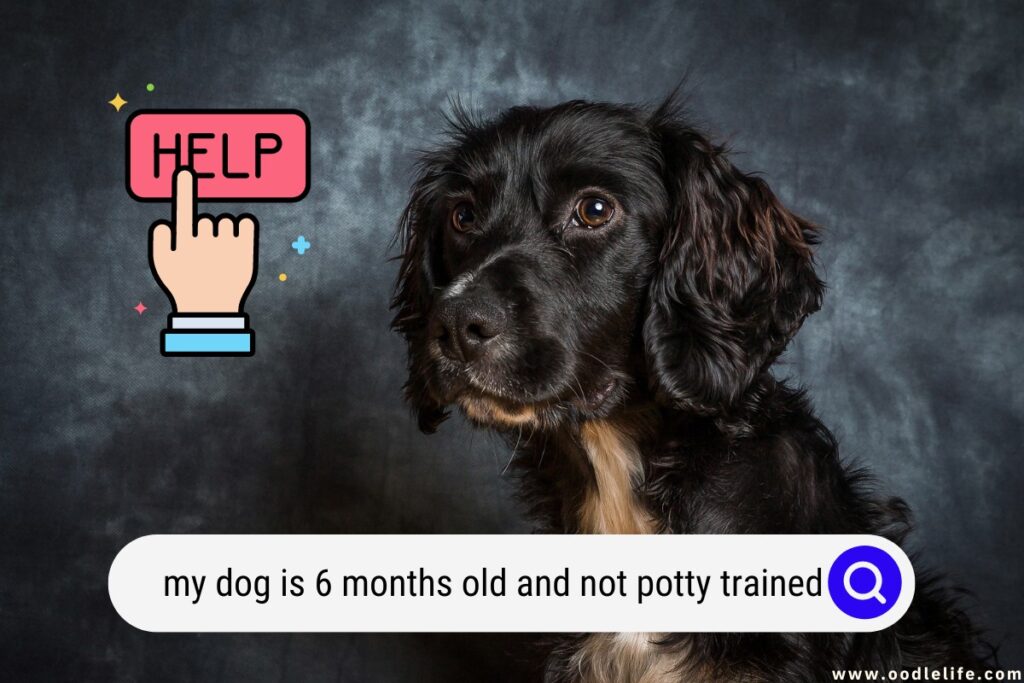
In this article, discover the best methods of potty training your dog and five easy steps of potty training that work for six-month-old puppies as well as older ones.
When Should You Start House Training Your Puppy?
Most puppies are ready to begin potty training at three months old. Three months is the perfect age to begin training because they have control over their bowels and bladder and can start holding for longer timespans.
If you are rehoming a puppy older than three months, it might be more difficult for you to train them. However, it is not impossible to potty train an older puppy with a few simple training techniques and plenty of encouragement and rewards.
A consistent routine and a pocket full of treats are the first steps on your journey to success with potty training for your puppy, even if it is over six months old.
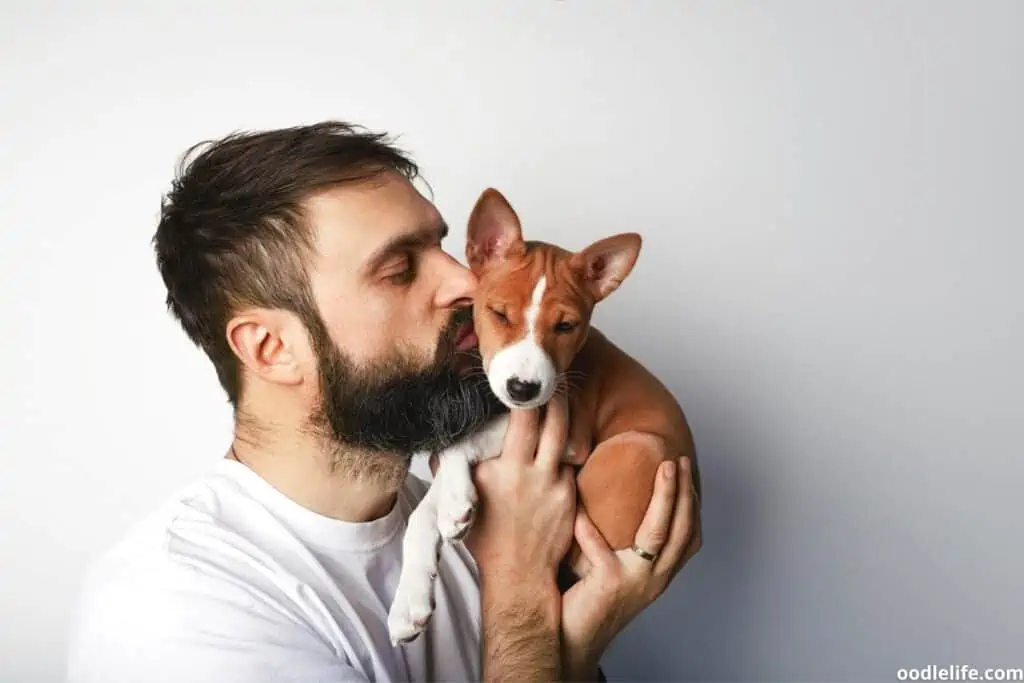
Steps for Potty Training Your Puppy
During potty training, it is always best to keep your puppy confined to a small space, such as:
- A dog crate
- A small room
- A dog pen
- On a leash
Keeping your puppy confined to a small space is especially important when you are away from the house for long periods, such as working, shopping or errands.
When you are home, you can let your puppy out of confinement and keep a close eye on it for signs of having to go to the washroom.
Confining your puppy will also reduce accidents from occurring all over your house. If a puppy does have an accident, it is easier to clean up the mess when confined to a smaller area. As your puppy starts doing its business outside, you can gradually expand its indoor freedom.
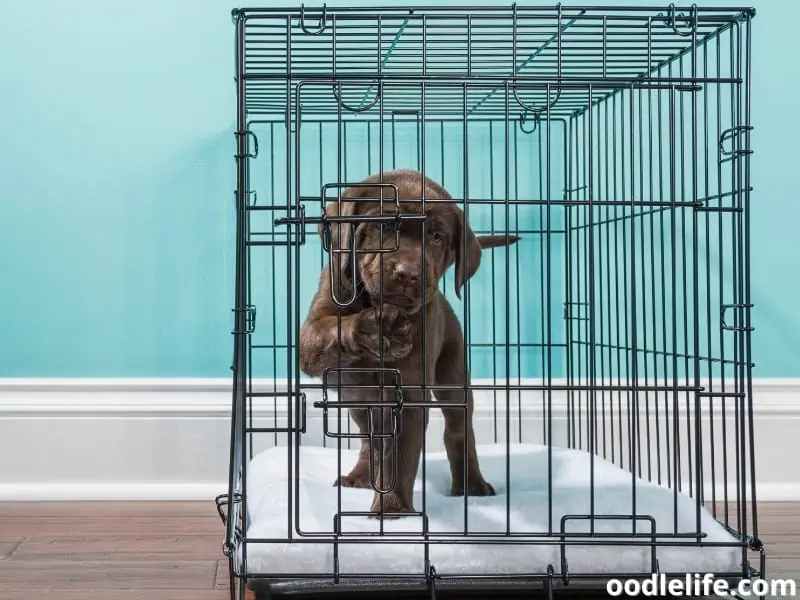
Here are some steps to follow to potty train your puppy at any age.
Feeding Schedule
Implement a set feeding schedule for your puppies, such as twice daily in the morning and afternoon. When the puppy has finished eating, remove its food source between meals.
Sticking to a strict eating schedule will teach your puppy to eat at meal times. Afterward, the food will disappear until the next feeding.
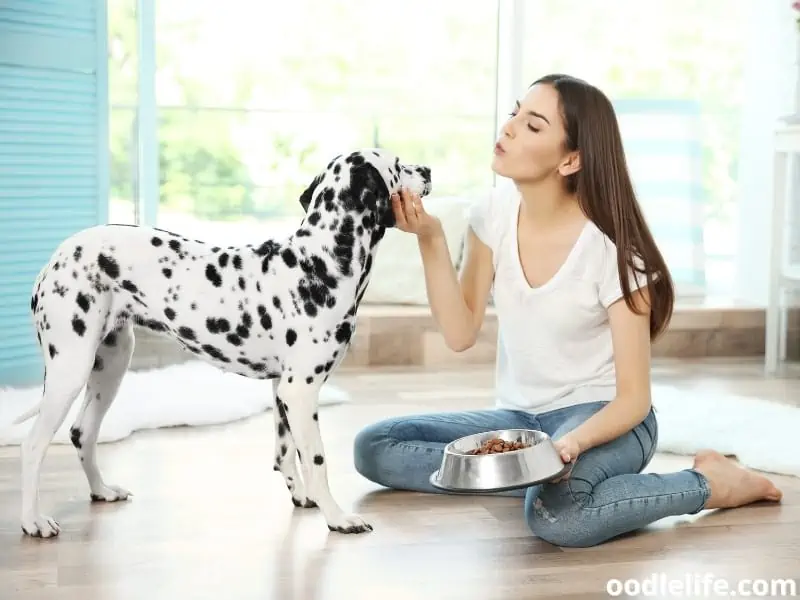
Potty Schedule
Take your puppy outside to the bathroom when it first wakes up in the morning, after naps, after eating, and every half hour to an hour throughout the day, depending on how long the puppy can hold itself without having accidents in the house.
Younger puppies can not usually go very long without having to pee. As their bladder develops, they can hold their pee in for longer.
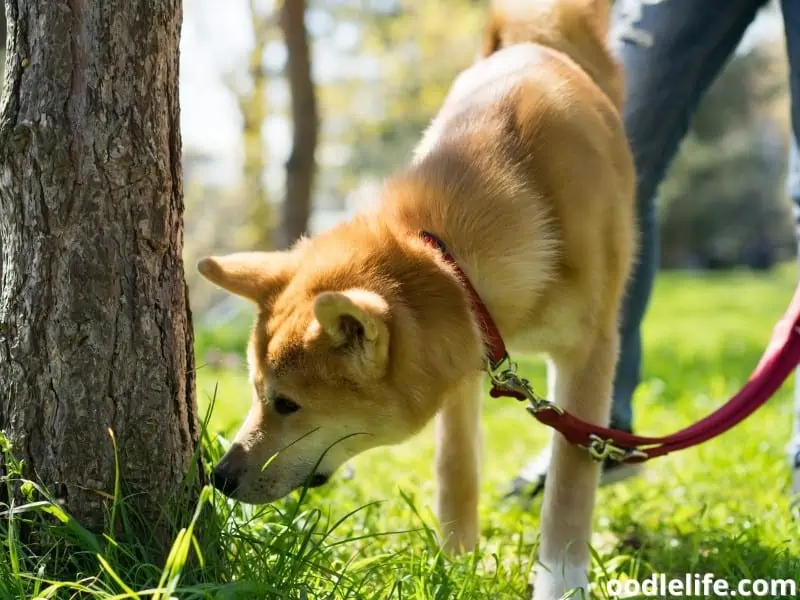
Consistency
Take your puppy outside to the same spot each time you potty train it. Puppies have good noses and will pick up the scent of their urine. Bringing your puppy to the exact location each time will help trigger them to pee.
Stay close by your puppy when they are outside to remind them what they are out there for and discourage them from trying to take off. Bring the puppy back inside as soon as it has finished its job.
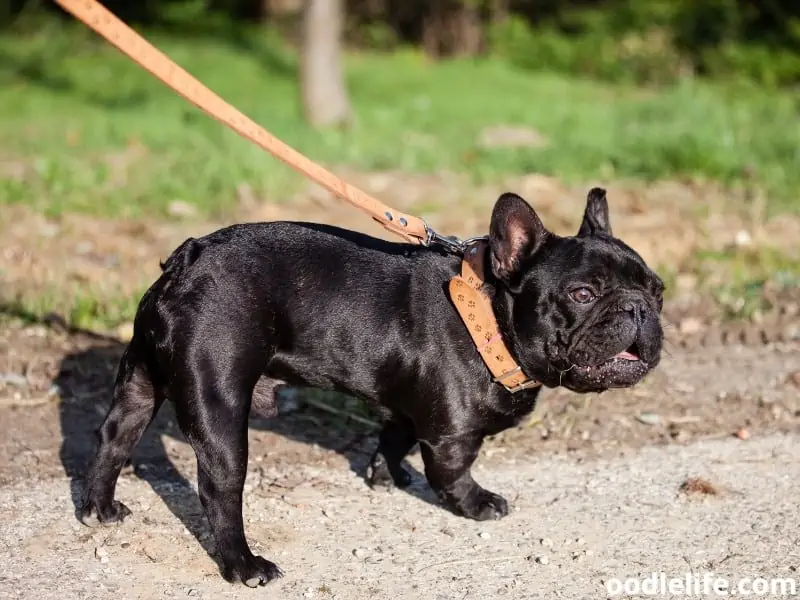
Using Rewards
Immediately reward your puppy with words of encouragement, such as “good puppy,” and give it a treat. Puppies love food, especially yummy chicken or beef-flavored puppy treats.
By following these simple steps, your puppy will soon learn a potty training routine that will gradually become easier each time.
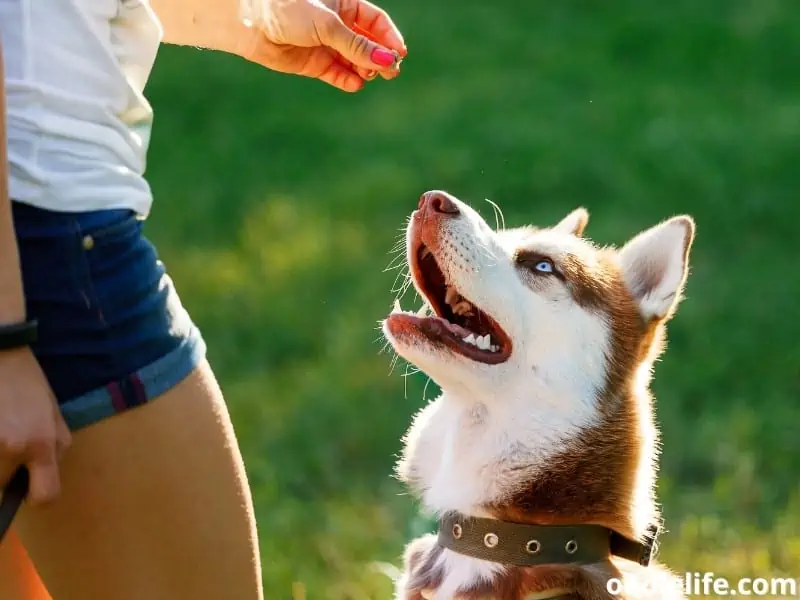
Using a Crate to Potty Train Your Puppy
A crate is an ideal method of potty training your puppy. Puppies often feel more content and safe in small spaces. Puppies also don’t like to go to the washroom on their bedding.
So being in a crate helps them to hold off on peeing longer until you can bring them outside.
Here are some recommendations when considering purchasing a crate to potty train your puppy:
- The ideal crate size should be big enough for our puppy to stand and turn around inside. However, the crate should not be large enough to go to the bathroom in the corner.
- Your puppy crate should have a place on the side to hold water for the puppy. Although it’s ideal to withhold food between meals, your puppy should always have fresh water.
- Until the puppy is eight months old, it should not be left in a crate without a potty break for more than four hours at a time. Otherwise, be prepared for the puppy to have accidents.
If you have followed these recommendations and your puppy is still voiding inside the crate, perhaps it is too young to potty train, has previously developed bad habits requiring fine-tuning, or the crate size is too large for your puppy.
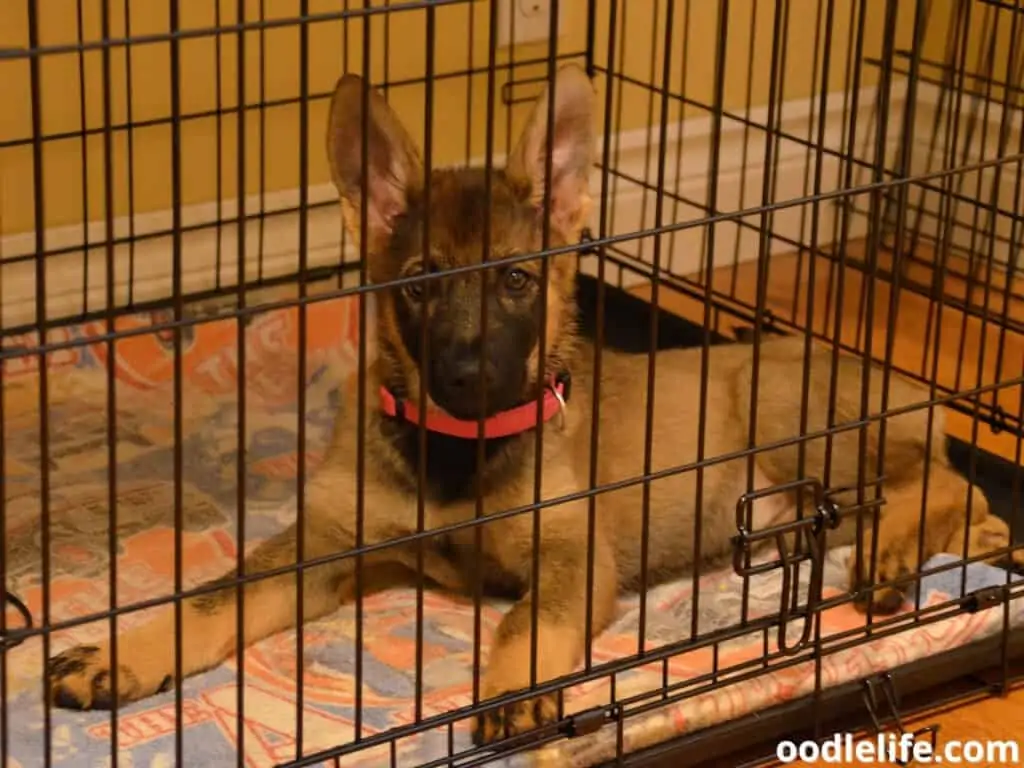
Signs That Your Puppy Needs to Potty
Every puppy is unique and has its way of letting its owner know they have to go to the bathroom. Here is a list of some of the most common indicators that your puppy needs out to go to the bathroom:
- Your puppy is making whining or whimpering sounds.
- Your puppy is running in circles for no apparent reason.
- The puppy is sniffing the floor.
If your puppy is running loose in the house, indications that it has to go to the bathroom may include:
- The puppy runs to the door.
- The puppy jumps up or scratches the door.
- The puppy is barking.
When your puppy shows signs that it has to go to the washroom, let it outside immediately and remember to reward it with verbal praise and a treat when finished. Even older puppies can learn new skills with consistency, encouragement, and rewards.
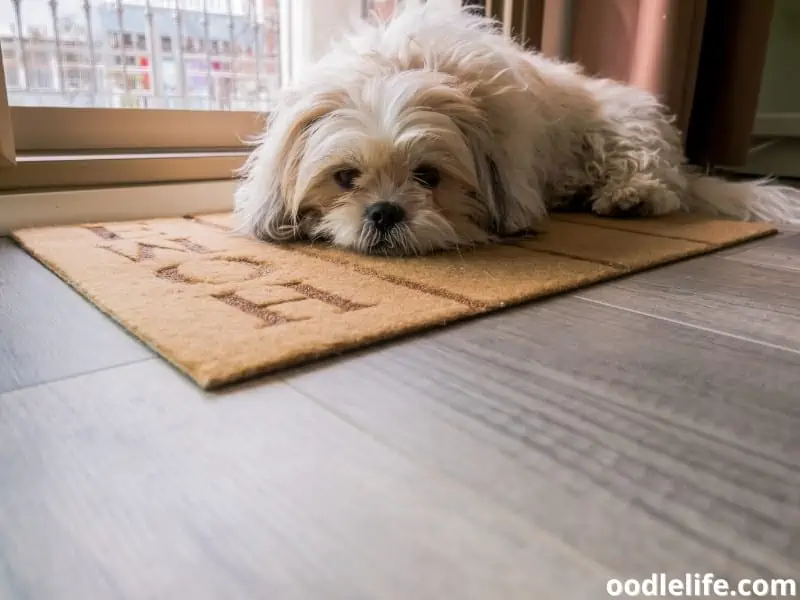
What To Do if Your Puppy Has an Accident Inside?
Puppies have small bladders and are also easily excitable. Therefore, they are bound to have accidents from time to time in the house.
Potty training accidents can happen with puppies up to one year old. There are several reasons for potty mishaps, including the following:
- Getting spooked by loud noises, such as thunderstorms or loud knocking on the door.
- Environmental changes.
- Medical problems, such as a cold or a bladder infection.
- Not being let outside often enough.
If your puppy has an odd accident in the house, never scold them. Sometimes it might make you angry when your puppy has an accident indoors on your good floors or carpets.
But the best way to teach your puppy that it’s wrong to go inside the house is to pick it up and put it outside without saying anything negative. Puppies can tell your attitude by the one in your voice. Therefore, it is best not to say anything.
After being outside for a few minutes, bring the puppy inside and reward it with praise and a treat. Even if it didn’t do its business outside this time, rewards help your puppy learn when they go to the bathroom outside, they get rewarded.
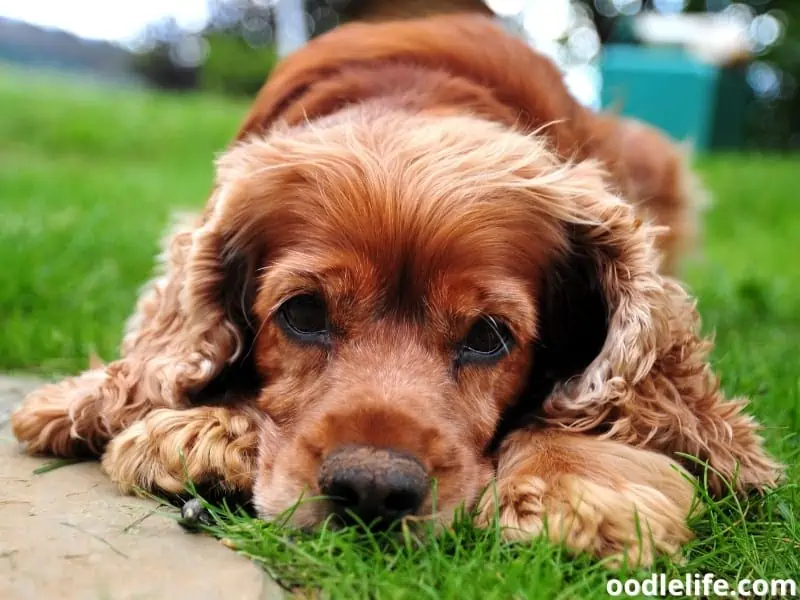
Proper Potty Training
Having a consistent potty training method is crucial for training your puppy. Here are some common dos and don’ts when implementing your puppy toileting program.
| Dos | Don’ts |
| When you see your puppy about to have an accident indoors, clap your hands loudly and immediately bring them outside. | Never punish your puppy for having an accident in the house. |
| When your puppy goes to the bathroom outdoors, always praise them and reward it. | Never rub your puppy’s nose in their mess. Rubbing their nose in it does not train them. |
| Keep your puppy outdoors for as long as it takes to go to the washroom, and never rush it. | Never use ammonia-based cleaners to clean up messes because the odor attracts puppies to the scent, similar to urine. |
| Always bring your puppy to the same spot to potty. | Do not leave your puppy confined for longer than four hours without a potty break. |
| Stick to a consistent routine when potty training your puppy. | Never ignore your puppy’s warning signs that it has to go to the bathroom. |
| Be patient and willing to overlook the odd accident. | Never use pee pads in the house when potty training your puppy. |
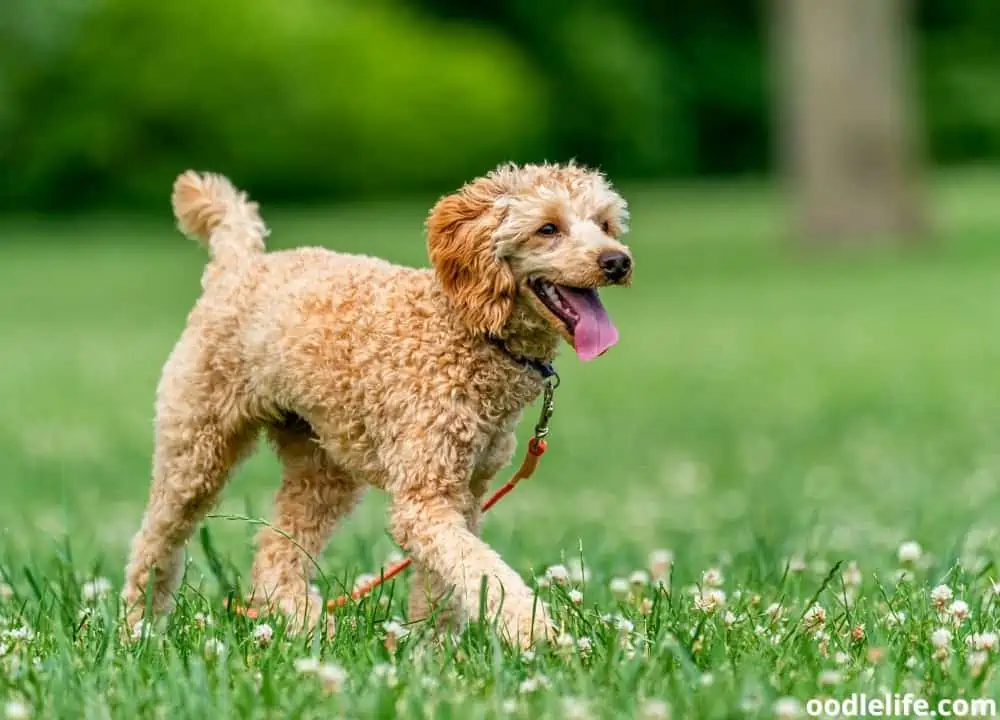
Final Thoughts for Potty Training Puppies Over Six Months Old
Having a puppy can be one of the most rewarding experiences, especially if they are potty trained. Some puppies are quick learners when it comes to potty training, while others may take longer to learn the ropes.
However, with consistency, patience, and lots of praise and rewards, every dog can be potty trained regardless of its age.